Damage
by Kristen Hoggatt-Abader
for Gabrielle Giffords
Of the five beds in the ICU
the only thing moving
was the damaged brain
.
I was of two brains
wasn’t I?
One of them was indisposed
I rose to the ceiling
and gazed at the damage below me
.
The pressure gauge needle aimed at red
and the top doc said Ah
That’s why the skin puffs out under the eyes
That’s the brain swell
indiscriminate in cases of TBI
Traumatic Brain Injury
The mother calls a priest
The father calls his lawyer friends
The sister stares at the fire extinguisher propped in the corner
seething at its red
.
A nurse and a doctor become one
tending the wet organ
A nurse and a doctor and a damaged brain
become one
late into the night
the doctor the brain’s borrowed pulse
the nurse its hand that sets the bone
.
I don’t know which to prefer
the beauty of the hospital’s silence at midnight
or the beauty of the hospital at midnight
when a rolling stretcher breaks its hum
.
This is not woodshop but the same principles apply
as a drill removes a piece of skull
Bits of bone drop to the floor
like irrational wooden dowels
One doc says Hold it steady
The cynic Watch your thumb
.
The brain rules the body
so when it’s away the body rebels
collapsed lungs broken jaw
extra bone growth in the knee
A hole in the neck helps it breathe
.
The damaged brain can’t signal the tongue to speak
The tongue is not damaged but it too feels the bruise
pulsing
.
When nobody’s listening the damaged brain says
NIPPLE
.
Even when the brain understands the words
double vision won’t let it read
Double vision is like having floaters in the eye
that are patterned to the scene
.
O skinny LPNs in your droopy scrubs
you loathe rolling over the body
to secure the piss pot under its bum
Celebrate that the brain is coming
the damaged brain!
.
I know numbers colors A through Z
the vocab of being
ten years old
I know I’m eighteen
I know chicken licked off the wing
but the damaged brain wants cinnamon and cumin seed
a fat purple crayon to color outside the lines
.
It was winter well into March
bone cold but no layer of white
softening the severe rocks on the horizon
The damaged brain hid behind a skull
shaved and scarred by a nonnative tribe
I am still a brain
knotted and crossed
by grooves of wisdom
that made the scalpel pause
Damage rocked through the brain like cat yowls
through the alley way that never
stop
Vocabulary Lessons
Lesson 1—“Stress”
“What’s the meaning, haboob,
in English?”
“Haboob?
‘Dust storm.’”
“This ‘dust storm’ on your face
for two month.”
“Oh, you mean
‘pimple.’ “Haboob
can also mean ‘pimple.’”
“This ‘bimbel’ in your face
for two month.”
“This ‘pimple’ has been
on my face for two months—
I know. It’s stress.”
“Yani eh, ‘stress?’”
“‘Stress,’ like when you’re scared
for no good reason.”
“No, no ‘stress.’
From the wedding party—
guests give you hasad.”
“The evil eye?!”
“Ah walahi!
Because you beautiful.
We have people this way in Egypt.
Guests also give you ‘chress.’”
“No, it’s ‘stress.’”
“What’s the meaning,
‘stress’? Khaifa men eh?”
“I’m not scared of anything,
really, just of bad carbs
and the imminent rebellion
of those tiny dogs
that women tote in their handbags.”
“Nermeen doesn’t make a baby.
She angry with her husband.”
“They’ve only been married
for two months!”
“Yani eh?”
“Yani, they need
more time.”
“Why?”
“Stress.”
“‘Stress?’”
“‘Stress.”’
Lesson 2—“Mayonnaise”
“The girl in the taqueria is understanding
Arabic.”
“Really? How do you know?”
“I say ‘pescado burrito’ in Arabic
and I get pescado burrito.”
“What’s ‘pescado burrito’ in Arabic?”
“‘Pescado burrito.’”
“And she understood that?”
“‘Kamen’ in Arabic is
‘tambien’ in Spanish.”
“That’s cool!”
“It is same, no, close—
what I say?
“It is ‘similar.’”
“It is ‘similar.’
Do you want some
‘pescado burrito?’”
“No thanks, I don’t eat mayonnaise.”
“What’s the meaning,
‘mayohnees?’”
“ ‘Mayonnaise’—that
oily white stuff.”
“Why? It is good!
Yani eh, ta’m?
“Flavor.”
“Good flavor,
‘mayohnees.’
Easy.”
“What do you mean, ‘easy?’”
“This ‘easy.’ Put it on
and make stuff better.”
Lesson 3—“Forbidden”
“Don’t tell your friends
that we find this in the street.”
“Why?”
“Because, it’s haram.”
“But I cleaned them!”
“Still, haram.”
“Why?”
“Because they’re coming from the street!”
“But I cleaned them!”
“You don’t listen:
haram.”
Lesson 4—“Forbidden”
“Gamal, you really should stop calling people
fat.”
“But they are fat.”
“But people don’t say so here.
It’s considered rude.”
“What’s the meaning,
‘rude?’”
“You know, I don’t remember.
Mish qwais.”
“Like haram?”
“Yes, exactly like haram.”
Lesson 5—“A little bit”
“Can you help me?”
“What you need?”
“I’m trying to translate this poem.
What’s this mean, nabiyeth?
“No, listen: nabithu.”
“Nabidu?”
“No, nabithu. It means like
‘a little bit.’”
“But the dictionary
says it means ‘wine.’”
“Yes, it does.”
“It means both?”
“Yes.”
“But the dictionary—”
“Look Kris,
this book is full
of paper.”
Lesson 6—“Meaning”
“I need something to give
the poem more meaning.”
“What’s the meaning,
‘meaning?’”
“You know what it means!”
“Yes, but I think it means
something different
to you.”
Lesson 7—“My love”
“Kris!”
“What?”
“I read your poem!”
“Really? Do you like it?”
“Yeah.”
“Can you understand it?”
“Only a little bit.”
“What part do you understand?”
“I told you not to tell your friends
that we found those things in the street.”
“I didn’t tell my friends.”
“You wrote a poem about it!”
“No, I didn’t.”
“Yes, you did. Listen—
‘Don’t tell your friends
that we find this in the street.’
It’s right here!”
“Habiby, that poem’s about us.”
BIO
Kristen Hoggatt’s chapbook of poems, ARAB WINTER, was published by Finishing Line Press in 2014. In addition to previously appearing in The Writing Disorder, her poems have been published in journals including The Sow’s Ear Poetry Review, The Ledge Magazine, Nimrod International, and The Smart Set, where she was also the “Ask a Poet” advice columnist from 2008-2011. She is currently a Lecturer in composition at the University of Arizona in Tucson.

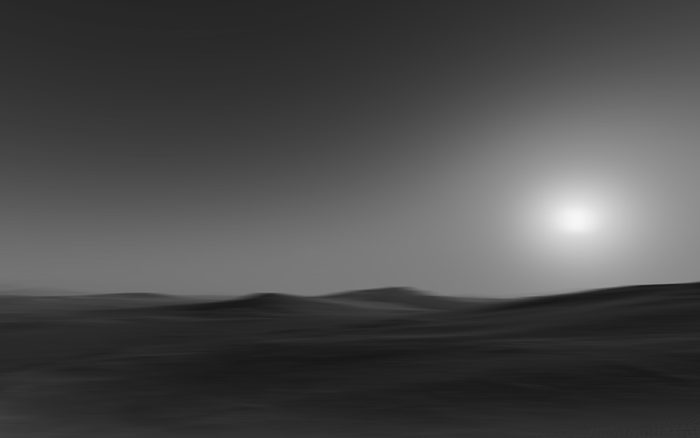
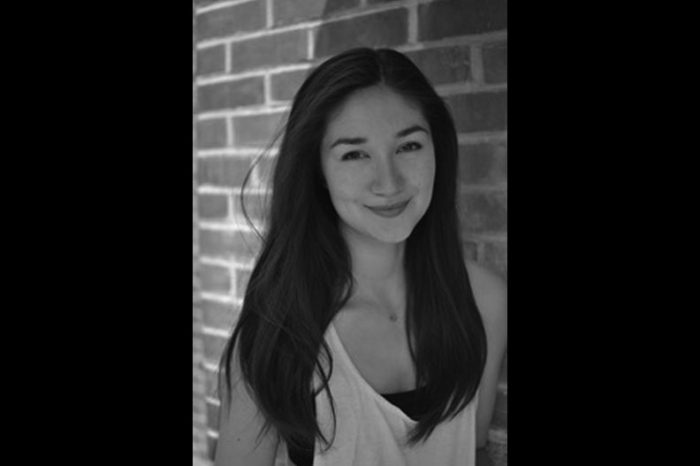
 Sara Truuvert graduated from Victoria College at the University of Toronto, where she studied English, Drama, and the History and Philosophy of Science. She wrote humour articles for the student newspaper, The Strand, for which she was shortlisted for a John H. McDonald award. Her poetry has appeared in Cadaverine Magazine. Sara is also an actor and screenwriter with a short film in production with Toronto’s Labyrinth Pictures. In her spare time, she runs the web comic Marvin and Pip.
Sara Truuvert graduated from Victoria College at the University of Toronto, where she studied English, Drama, and the History and Philosophy of Science. She wrote humour articles for the student newspaper, The Strand, for which she was shortlisted for a John H. McDonald award. Her poetry has appeared in Cadaverine Magazine. Sara is also an actor and screenwriter with a short film in production with Toronto’s Labyrinth Pictures. In her spare time, she runs the web comic Marvin and Pip.
 Ruth Bavetta writes at a messy desk overlooking the Pacific Ocean. Her poems have appeared in Rattle, Nimrod, Tar River Review, North American Review and many other journals and anthologies. Her books are Fugitive Pigments (FutureCycle Press, 2013) Embers on the Stairs (Moontide Press, 2014,) Flour Water Salt (FutureCycle Press, 2016.) and No Longer at This Address (Aldritch Books.) She likes the light on November afternoons, the music of Stravinsky, and the smell of the ocean; she hates pretense, fundamentalism, and sauerkraut.
Ruth Bavetta writes at a messy desk overlooking the Pacific Ocean. Her poems have appeared in Rattle, Nimrod, Tar River Review, North American Review and many other journals and anthologies. Her books are Fugitive Pigments (FutureCycle Press, 2013) Embers on the Stairs (Moontide Press, 2014,) Flour Water Salt (FutureCycle Press, 2016.) and No Longer at This Address (Aldritch Books.) She likes the light on November afternoons, the music of Stravinsky, and the smell of the ocean; she hates pretense, fundamentalism, and sauerkraut.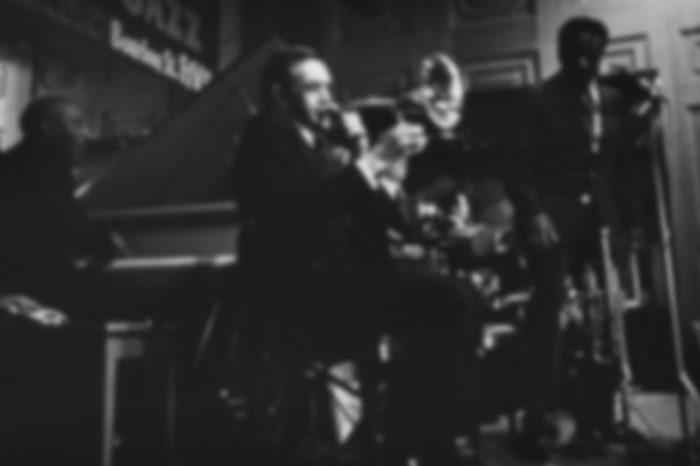

 Cliff Saunders has an MFA in Creative Writing from The University of Arizona. His poems have appeared recently in Serving House Journal, Five 2 One, The Big Windows Review, Rumble Fish Quarterly, and Whale Road Review. He lives in Myrtle Beach, where he works as a freelance writer.
Cliff Saunders has an MFA in Creative Writing from The University of Arizona. His poems have appeared recently in Serving House Journal, Five 2 One, The Big Windows Review, Rumble Fish Quarterly, and Whale Road Review. He lives in Myrtle Beach, where he works as a freelance writer.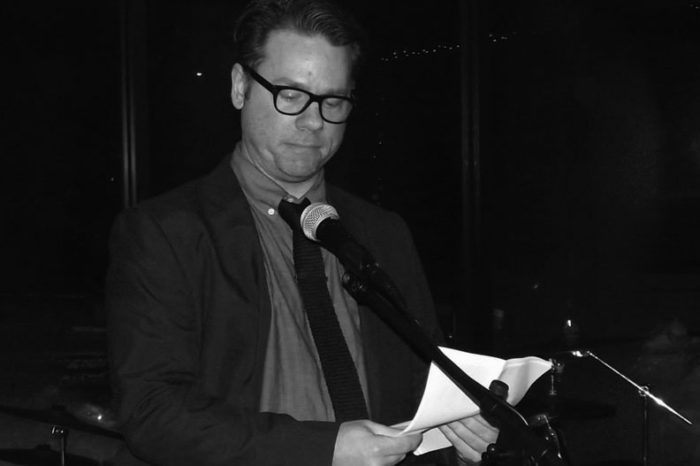
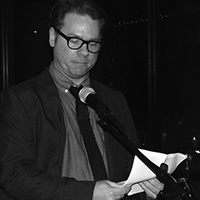 Joe Gianotti grew up in Whiting, Indiana, an industrial city five minutes from Chicago. He currently teaches English at Lowell High School. He is a proud contributor to Volume II of This is Poetry: The Midwest Poets. Among other poets, he represented Northwest Indiana in the 2014 Five Corners Poetry Readings. His work has been published in Former People: A Journal of Bangs and Whimpers, Steam Ticket: A Third Coast Review, The Tipton Poetry Journal, This, Yes Poetry, and other places. You can follow him on Twitter at @jgianotti10.
Joe Gianotti grew up in Whiting, Indiana, an industrial city five minutes from Chicago. He currently teaches English at Lowell High School. He is a proud contributor to Volume II of This is Poetry: The Midwest Poets. Among other poets, he represented Northwest Indiana in the 2014 Five Corners Poetry Readings. His work has been published in Former People: A Journal of Bangs and Whimpers, Steam Ticket: A Third Coast Review, The Tipton Poetry Journal, This, Yes Poetry, and other places. You can follow him on Twitter at @jgianotti10.
 Garth Pavell writes stories, poems and songs. His writing most recently appeared in Drunk Monkeys, Main Street Rag and Mudfish. Garth works for an international animal welfare nonprofit in New York City.
Garth Pavell writes stories, poems and songs. His writing most recently appeared in Drunk Monkeys, Main Street Rag and Mudfish. Garth works for an international animal welfare nonprofit in New York City.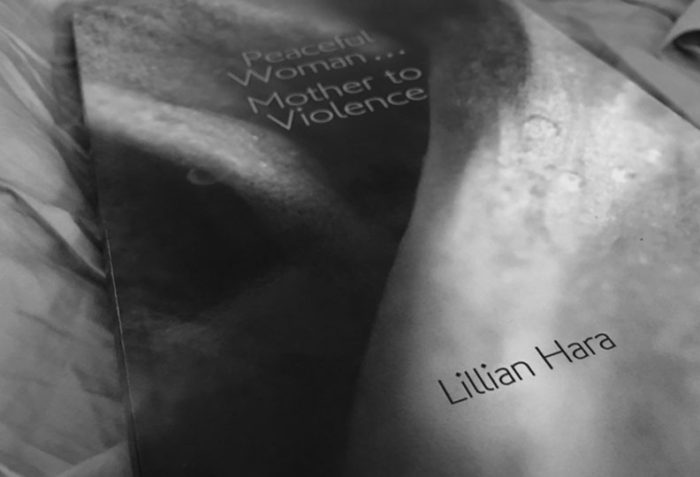

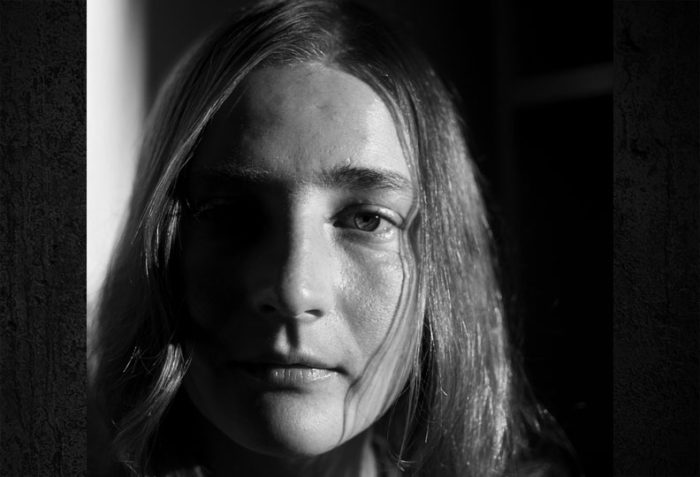
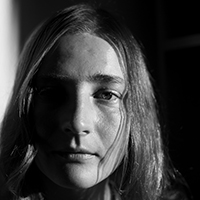 Margarita Serafimova was shortlisted for the Montreal International Poetry Prize 2017. She has two collections in Bulgarian: Animals and Other Gods (2016) and Demons and World (2017). Her work is forthcoming in Agenda, Trafika Europe, The Journal, Waxwing, Ink, Sweat and Tears, Futures Trading, Poetic Diversity, TAYO, The Punch, Aaduna, Three Drops from a Cauldron, The Transnational, Sea Foam Mag, SurVision, and has appeared in London Grip New Poetry, A-Minor, Minor Literatures, Noble / Gas, The Birds We Piled Loosely, Obra / Artifact, Ginosko, Dark Matter, Window Quarterly / Patient Sounds, Peacock Journal, Anti-Heroin Chic, Wild Word, Plum Tree Tavern, MOON Magazine, Outlaw Poetry, In Between Hangovers, MockingHeart Review, Renegade Rant and Rave, Tales From The Forest, Misty Mountain Review, Outsider Poetry, Heavy Athletics, The Voices Project, and Cent. Some of her work can be found at:
Margarita Serafimova was shortlisted for the Montreal International Poetry Prize 2017. She has two collections in Bulgarian: Animals and Other Gods (2016) and Demons and World (2017). Her work is forthcoming in Agenda, Trafika Europe, The Journal, Waxwing, Ink, Sweat and Tears, Futures Trading, Poetic Diversity, TAYO, The Punch, Aaduna, Three Drops from a Cauldron, The Transnational, Sea Foam Mag, SurVision, and has appeared in London Grip New Poetry, A-Minor, Minor Literatures, Noble / Gas, The Birds We Piled Loosely, Obra / Artifact, Ginosko, Dark Matter, Window Quarterly / Patient Sounds, Peacock Journal, Anti-Heroin Chic, Wild Word, Plum Tree Tavern, MOON Magazine, Outlaw Poetry, In Between Hangovers, MockingHeart Review, Renegade Rant and Rave, Tales From The Forest, Misty Mountain Review, Outsider Poetry, Heavy Athletics, The Voices Project, and Cent. Some of her work can be found at: 
 A three-time Pushcart Prize, Best of the Net, & Bettering American Poetry nominee, Lana Bella is an author of three chapbooks: Under My Dark (Crisis Chronicles Press, 2016), Adagio (Finishing Line Press, 2016), and Dear Suki: Letters (Platypus 2412 Mini Chapbook Series, 2016). She has had poetry and fiction featured in over 400 journals including, Acentos Review, Comstock Review, Expound, EVENT, Ilanot Review, and Notre Dame Review, among others. She also has work forthcoming in Aeolian Harp Anthology, Volume 3. Lana resides in the US and the coastal town of Nha Trang, Vietnam, where she is a mom of two far-too-clever, frolicsome imps. Her work can be found at:
A three-time Pushcart Prize, Best of the Net, & Bettering American Poetry nominee, Lana Bella is an author of three chapbooks: Under My Dark (Crisis Chronicles Press, 2016), Adagio (Finishing Line Press, 2016), and Dear Suki: Letters (Platypus 2412 Mini Chapbook Series, 2016). She has had poetry and fiction featured in over 400 journals including, Acentos Review, Comstock Review, Expound, EVENT, Ilanot Review, and Notre Dame Review, among others. She also has work forthcoming in Aeolian Harp Anthology, Volume 3. Lana resides in the US and the coastal town of Nha Trang, Vietnam, where she is a mom of two far-too-clever, frolicsome imps. Her work can be found at: 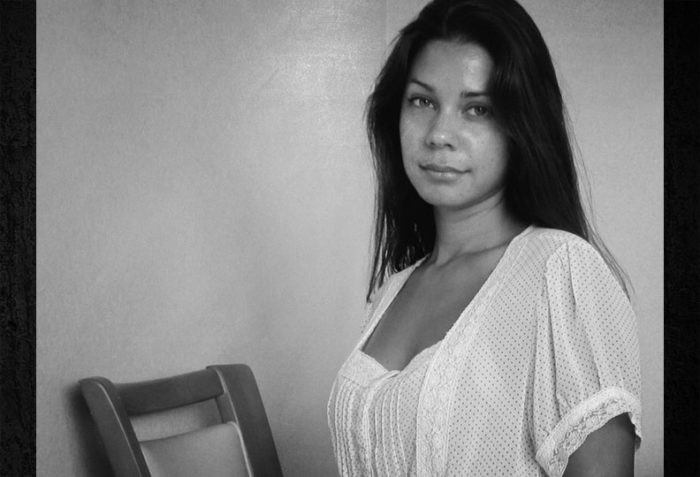
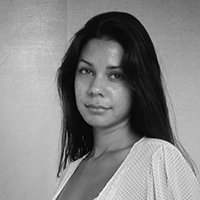 Elizabeth Bolton is a doctoral student at the University of Toronto where she studies writing and its effects on the mind. In addition to poetry, she writes narrative nonfiction, though in truth she finds genre distinctions rather meaningless.
Elizabeth Bolton is a doctoral student at the University of Toronto where she studies writing and its effects on the mind. In addition to poetry, she writes narrative nonfiction, though in truth she finds genre distinctions rather meaningless.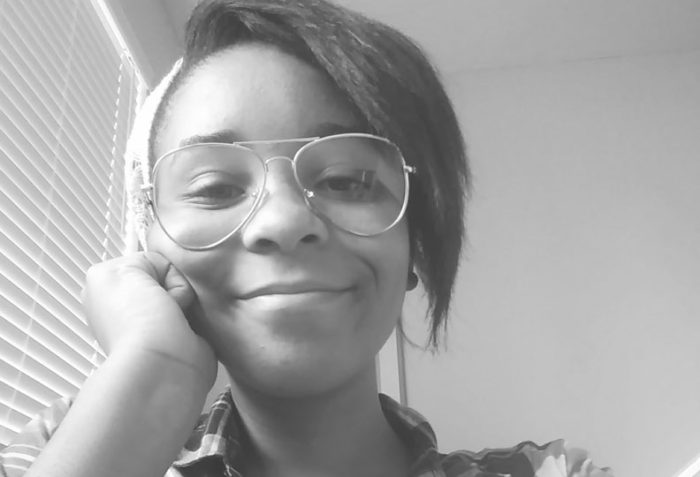
 Keiona Wallace is a senior at Douglas Anderson School of the Arts studying in creative writing. She lives in Jacksonville, Florida, working as the Print Editor for her school newspaper, The Artisan. Keiona wants to pursue writing in the future and hopefully work in journalism and print. She enjoys using poetry as an outlet for her overactive mind, questioning everything that comes in view. Poetry allows her to get in touch with all her emotions and deeply explore her feelings. She’s very charismatic and loves helping in any way she can, making any kind of detail impactful.
Keiona Wallace is a senior at Douglas Anderson School of the Arts studying in creative writing. She lives in Jacksonville, Florida, working as the Print Editor for her school newspaper, The Artisan. Keiona wants to pursue writing in the future and hopefully work in journalism and print. She enjoys using poetry as an outlet for her overactive mind, questioning everything that comes in view. Poetry allows her to get in touch with all her emotions and deeply explore her feelings. She’s very charismatic and loves helping in any way she can, making any kind of detail impactful.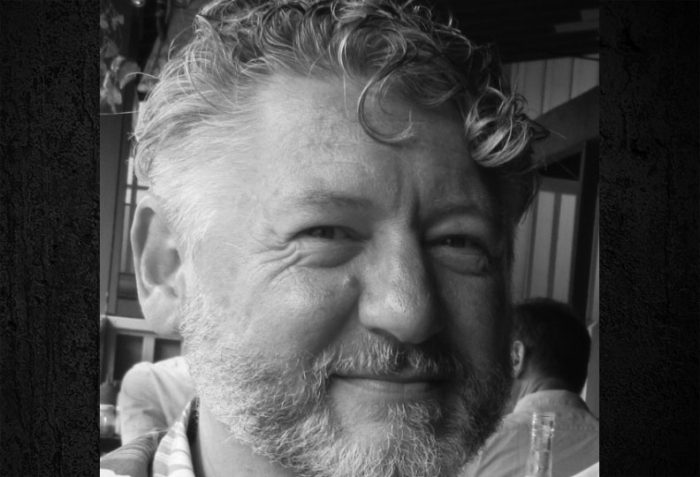
 Glenn Ingersoll works for the Berkeley Public Library where he hosts Clearly Meant, a thrice-yearly reading & interview series. He has two chapbooks: City Walks (broken boulder) and Fact (Avantacular). He keeps two blogs: LoveSettlement and Dare I Read. Recent work has appeared in Poetry East, Askew, Futures Trading, and BlazeVOX.
Glenn Ingersoll works for the Berkeley Public Library where he hosts Clearly Meant, a thrice-yearly reading & interview series. He has two chapbooks: City Walks (broken boulder) and Fact (Avantacular). He keeps two blogs: LoveSettlement and Dare I Read. Recent work has appeared in Poetry East, Askew, Futures Trading, and BlazeVOX.
 STEVEN RATINER has published three poetry chapbooks, the most recent of which – Button, Button (OpenEye Press) – was a collaboration with artist Marty Cain. His work has appeared in dozens of journals in America and abroad including Parnassus, Agni, Blackbird, Hanging Loose, Poet Lore, Salamander, QRLS (Singapore) and Poetry Australia. He’s written poetry criticism for The Christian Science Monitor, The San Francisco Chronicle, and The Washington Post. GIVING THEIR WORD: Conversations with Contemporary Poets was re-issued in a paperback edition (University of Massachusetts Press) and features interviews with many of poetry’s most vital talents including Seamus Heaney, Mary Oliver, Charles Simic, Bei Dao, Maxine Kumin, and the last full-length interview with Bill Stafford before his death.
STEVEN RATINER has published three poetry chapbooks, the most recent of which – Button, Button (OpenEye Press) – was a collaboration with artist Marty Cain. His work has appeared in dozens of journals in America and abroad including Parnassus, Agni, Blackbird, Hanging Loose, Poet Lore, Salamander, QRLS (Singapore) and Poetry Australia. He’s written poetry criticism for The Christian Science Monitor, The San Francisco Chronicle, and The Washington Post. GIVING THEIR WORD: Conversations with Contemporary Poets was re-issued in a paperback edition (University of Massachusetts Press) and features interviews with many of poetry’s most vital talents including Seamus Heaney, Mary Oliver, Charles Simic, Bei Dao, Maxine Kumin, and the last full-length interview with Bill Stafford before his death.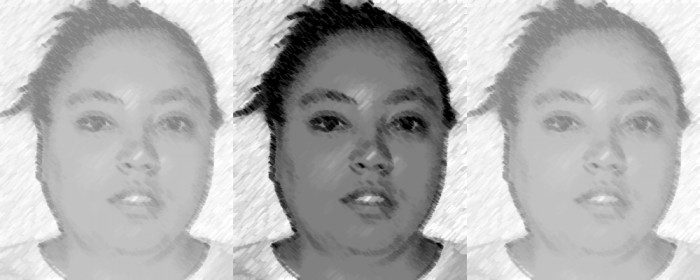
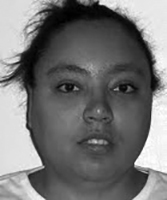 Abigail George’s fiction was nominated for a Pushcart Prize. She briefly studied film and television production at Newtown Film and Television School opposite the Market Theatre in Johannesburg. She is the writer of Africa Where Art Thou (2011), Feeding the Beasts (2012), All About My Mother (2012), Winter in Johannesburg (2014), Brother Wolf and Sister Wren (2015), and Sleeping Under the Kitchen Tables in the Northern Areas (2016). Her poetry has been widely published in anthologies, in print in South Africa, and in zines from Nigeria to Finland, and New Delhi, India to Istanbul, Turkey. She lives, works, and is inspired by the people of the Eastern Cape, South Africa.
Abigail George’s fiction was nominated for a Pushcart Prize. She briefly studied film and television production at Newtown Film and Television School opposite the Market Theatre in Johannesburg. She is the writer of Africa Where Art Thou (2011), Feeding the Beasts (2012), All About My Mother (2012), Winter in Johannesburg (2014), Brother Wolf and Sister Wren (2015), and Sleeping Under the Kitchen Tables in the Northern Areas (2016). Her poetry has been widely published in anthologies, in print in South Africa, and in zines from Nigeria to Finland, and New Delhi, India to Istanbul, Turkey. She lives, works, and is inspired by the people of the Eastern Cape, South Africa.
 Kailey Tedesco is the author of These Ghosts of Mine, Siamese (Dancing Girl Press) and the forthcoming full-length poetry collection She Used to be on a Milk Carton (April Gloaming Publications). She is the editor-in-chief of Rag Queen Periodical and a performing member of the NYC Poetry Brothel. Her poetry has been nominated for the Pushcart Prize. In 2016, she received her MFA in creative writing from Arcadia University. You can find her work in Bellevue Literary Review, Meat for Tea, FLAPPERHOUSE, Mass Poetry Poem of the Moment, Prick of the Spindle, and more. For more, please follow @kaileytedesco.
Kailey Tedesco is the author of These Ghosts of Mine, Siamese (Dancing Girl Press) and the forthcoming full-length poetry collection She Used to be on a Milk Carton (April Gloaming Publications). She is the editor-in-chief of Rag Queen Periodical and a performing member of the NYC Poetry Brothel. Her poetry has been nominated for the Pushcart Prize. In 2016, she received her MFA in creative writing from Arcadia University. You can find her work in Bellevue Literary Review, Meat for Tea, FLAPPERHOUSE, Mass Poetry Poem of the Moment, Prick of the Spindle, and more. For more, please follow @kaileytedesco.
 Greg Hill is an educator, adjunct professor of English, math tutor, and voice over talent in West Hartford, Connecticut. He has an MFA from Vermont College of Fine Arts and his work has appeared in Atlas and Alice, Barzakh, Cargo Literary, Cheap Pop, Grub Street, Past Ten, Queen Mob’s Teahouse, Whiskey Island and elsewhere. Thanks to his kids, he has memorized the movies Frozen, Trolls, and Moana. He spends his free time studying quantum mechanics and toki pona.
Greg Hill is an educator, adjunct professor of English, math tutor, and voice over talent in West Hartford, Connecticut. He has an MFA from Vermont College of Fine Arts and his work has appeared in Atlas and Alice, Barzakh, Cargo Literary, Cheap Pop, Grub Street, Past Ten, Queen Mob’s Teahouse, Whiskey Island and elsewhere. Thanks to his kids, he has memorized the movies Frozen, Trolls, and Moana. He spends his free time studying quantum mechanics and toki pona.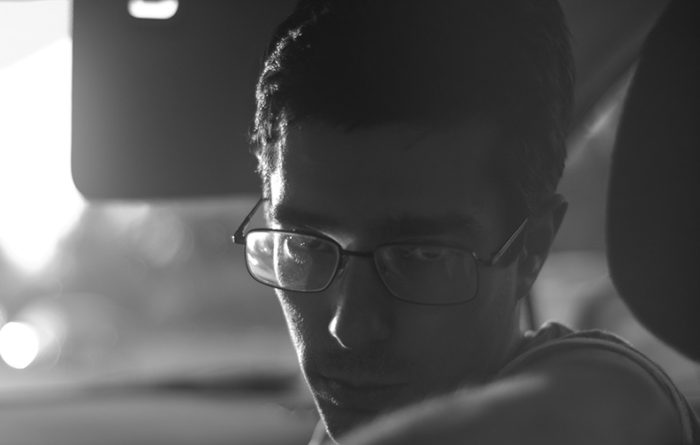
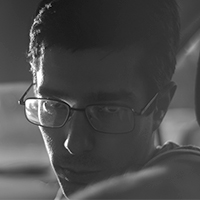 S. L. V. Stronwin was born in Upstate New York, but has been itinerant for some time, finding home in the Central Coast of California, the Central Valley of the same, Baja Arizona, the far woods of Vermont, and the Black Canyon of the Gunnison. At present, the author writes what he reads: subversive high fantasy, eldritch weird fiction, scientific nonfiction, and stuff about plants. He has one cat, a genteel and tuxedo-bound fellow named Sokka. His work can be found at (amazon.com/author/slvs) – the author’s work, that is, not the cat’s.
S. L. V. Stronwin was born in Upstate New York, but has been itinerant for some time, finding home in the Central Coast of California, the Central Valley of the same, Baja Arizona, the far woods of Vermont, and the Black Canyon of the Gunnison. At present, the author writes what he reads: subversive high fantasy, eldritch weird fiction, scientific nonfiction, and stuff about plants. He has one cat, a genteel and tuxedo-bound fellow named Sokka. His work can be found at (amazon.com/author/slvs) – the author’s work, that is, not the cat’s.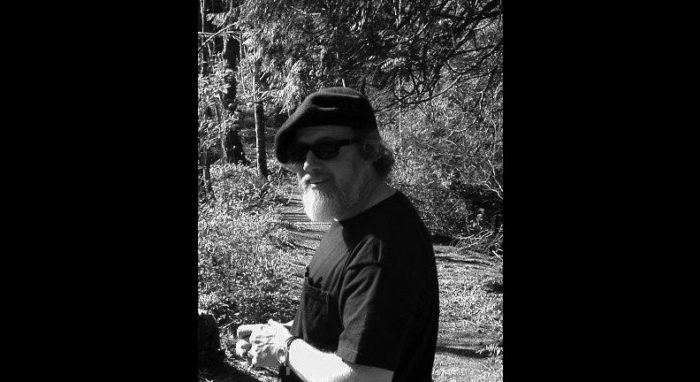
 Charles W. Brice is a retired psychoanalyst and is the author of Flashcuts Out of Chaos (WordTech Editions, 2016) and Mnemosyne’s Hand (WordTech Editions, forthcoming, May, 2018). His poetry has been nominated for a Pushcart Prize and has appeared in over forty-five publications including The Atlanta Review, Hawaii Review, Chiron Review, The Dunes Review, Fifth Wednesday Journal, Sport Literate, SLAB, The Paterson Literary Review, Spitball, VerseWrights, The Writing Disorder, and elsewhere.
Charles W. Brice is a retired psychoanalyst and is the author of Flashcuts Out of Chaos (WordTech Editions, 2016) and Mnemosyne’s Hand (WordTech Editions, forthcoming, May, 2018). His poetry has been nominated for a Pushcart Prize and has appeared in over forty-five publications including The Atlanta Review, Hawaii Review, Chiron Review, The Dunes Review, Fifth Wednesday Journal, Sport Literate, SLAB, The Paterson Literary Review, Spitball, VerseWrights, The Writing Disorder, and elsewhere.











